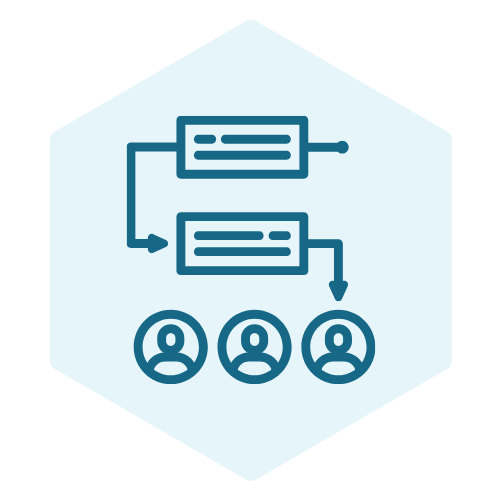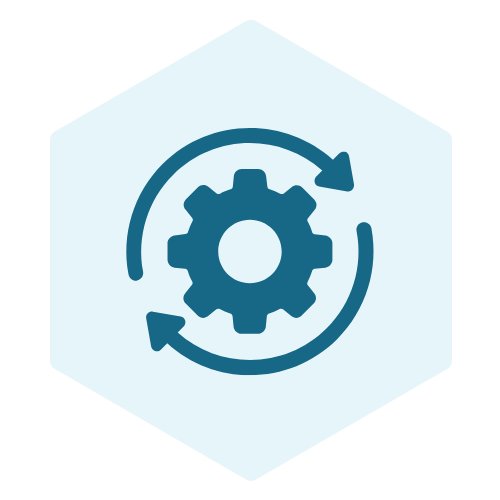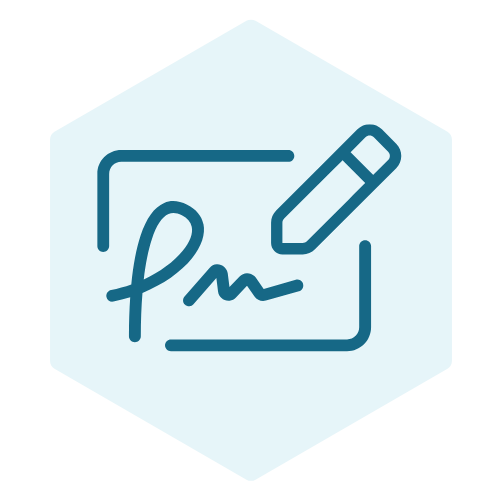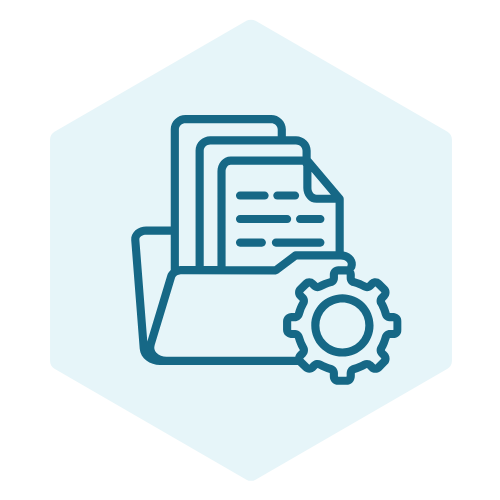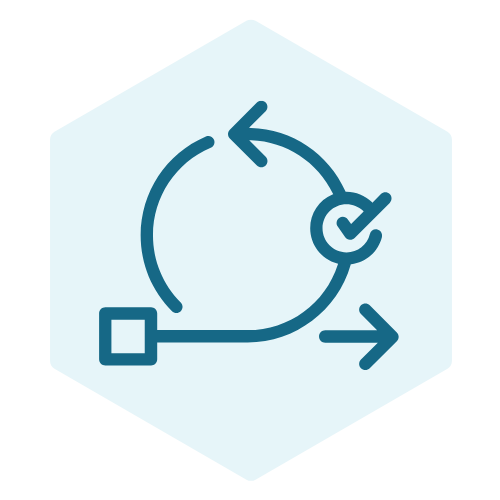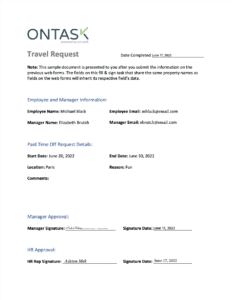Contract managers are the backbone of any solid contract management lifecycle. From procurement to contract management, these workers act as the ultimate point of accountability in ensuring a contract is well-executed and all parties work together as agreed. Their role covers every stage of a contract, from drafting to compliance.
No matter the industry, contract life cycles will only go well with sound contract management practices in place. So how can a contract manager ensure success in their role? In this article, we’ll identify four key functions that belong to any contract manager’s job description and accompanying best practices to ensure success.
Then we’ll take a look at powerful tools that can take your contract management to the next level by saving time, improving reliability, and increasing ROI for your existing resources. These include tools that can help create faster, better drafts while improving communication, as well as automation that eliminate busy work while ensuring your team’s workflow progresses without a hitch.
Roles, Responsibilities & Skills Of An Effective Contract Manager
A contract manager’s job description includes broad responsibilities. These duties involve overseeing the actual contract documents, but extend well beyond. Contract managers are also responsible for the relationship between the contracting parties (which may be clients, buyers, or suppliers, depending on the sector and business.)
This includes ensuring everyone complies with contract terms. In some cases, it may also involve more general relationship management, such as maintaining good relations between contracting parties to ensure a firm’s ongoing reputation. While contract managers are not necessarily lawyers, familiarity with contract law is key because managing a project often entails close collaboration with legal experts.
To make things more concrete, let’s take a look at four key functions a contract manager must oversee and how to best carry them out.
1. Drafting, Negotiating & Reviewing Contracts
At the beginning of the contract lifecycle, a contract manager oversees the drafting process, followed by contract review and negotiation between signing parties. Strong organizational and leadership skills are crucial to keeping the process moving as efficiently as possible.
Drafting alone can take up significant time. If each contract takes thirty to forty-five minutes to draft, that’s nearly an eighth of a standard workday per new document. If several contracts need to be drafted at once, this can quickly drain company resources.
After drafting, the contract goes through a review and negotiation process. Traditionally, a contract manager must ensure the right document versions are routed to all parties in a timely manner. If someone doesn’t respond in time, a team member needs to be assigned to follow up with them. This could involve heavy emailing back and forth and multiplying versions of the same document, depending on the word processing tools used by each party. It’s time-consuming, and important details can become lost in the mix. This is a challenge even for a highly competent contract manager.
Automating contract negotiation, review, and drafting can significantly streamline this process without a proportional increase in costs.
Investing in a solution that automates document drafting and review helps contract managers significantly reduce human error while improving timelines.
All this without having to take on a disproportionate number of new personnel.
2. Monitoring Contract Performance
Once the contract has been finalized, the contract manager is responsible for overseeing its practical application. For example, project-based contracts require tracking agreed-upon timelines, deliverables, invoicing, and payments. They may also entail overseeing scope changes and quality control for work completed.
This stage requires sound, practical judgment to find solutions to complex challenges. Even a well-qualified contract manager may run into inefficiencies and mistakes – especially if managing a large volume of complex contracts. To simplify contract tracking, consider automation tools that offer centralized performance and progress monitoring. This makes it less likely that a stalled project or key milestone will be forgotten – avoiding unnecessary resource waste and improving client experience.
3. Risk Management, Compliance & Legal Considerations
It’s a contract manager’s responsibility to ensure each contract is enforceable and compliant with applicable laws and internal company standards. There are also risks associated with contract interpretation and completeness. While contract managers aren’t lawyers, they must have a solid understanding of contract law. It’s also essential to rely on competent legal counsel to iron out potential oversights, omissions, or errors in the contract that could create a liability risk for the contracting firm.
Automation can build sound legal feedback into the contract lifecycle so no stone is left unturned.
4. Documentation & Record Keeping
Finally, contract management requires well-organized and compliant record-keeping. This isn’t just important in case of an audit: a contract manager needs to ensure their team can access key contract records as needed. At a basic level, this requires sound organizational skills and judgment to create a reliable system. It also requires familiarity with data storage, privacy, and security laws.
One of the greatest keys to success in contract recordkeeping lies in the right tools. Contract managers should look for software that automatically centralizes and secures their contract documents, allowing them to be found in moments, not hours. AI-based natural language processing (NLP) can help with this.
Technology & Tools Commonly Used By Contract Managers
Tools to automate the contract lifecycle can significantly improve a firm’s contract management process. The best platforms help ensure contract management best practices are built into a CLM team’s workflow.
Let’s take a look at some of the popular automation tools contract managers implement to improve efficiency for their teams.
Contract Lifecycle Management (CLM) Software
The best CLM solutions allow contract managers and their teams to automate workflows without having to code. This may involve automation technologies such as conditional logic, which enables teams to customize each step in their CLM process. More recently, these solutions have begun incorporating AI to facilitate everything from document drafting to contract analysis.
CLM automation can allow contract managers to:
- Streamline contract management workflows by creating custom triggers that automatically assign tasks, send alerts, and route documents at the right stage.
- Generate contract drafts quickly using pre-designed templates or natural language generation (NLG) – the AI used by tools such as ChatGPT.
- Centralize team collaboration and simplify contract negotiations by keeping communications in one place.
- Track contract progress, deadlines, and renewal dates in one platform, reducing common oversights.
Document Management Systems
The best document management solutions offer simple, centralized, and compliant document storage. Like the contract management software discussed above, they increasingly provide AI-powered document generation to make drafting more efficient and effective. Firms also look for seamless integrations into popular applications like Microsoft OneDrive, Google Drive, and iCloud. Adobe Sign and Docusign are among the most popular document management solutions and can integrate with applications such as Salesforce and Workday.
Document management tools can benefit contract managers by:
- Centrally storing documents in compliance with key requirements like HIPAA, SOC II Type 2, FERPA, and CCPA.
- Keeping sensitive data secure with features such as single sign-on (SSO) and two-factor authentication (SFA).
- Rapidly generating custom documents using AI and rich template libraries.
- Streamlining team collaboration with integrated document editing, commenting, and revisions.
- Integrating with common tools for document storage and sharing.
Collaboration, Communication & Project Management Tools
Project management tools can help contract managers automate and keep track of workflows, schedules, task assignments, and project progress. The most powerful tools have multi-level task and project progress overviews, track invoicing and billable hours, and integrate with apps contract management teams use regularly. Some of the most popular project management tools include Monday.com, Clickup, Apsara, and Zoho.
Contract managers can use project management platforms to:
- View project progress at a glance according to assignees, task status, deadline, and other custom views.
- Automate workflows, creating assignments and routing messages based on custom triggers such as a task status change or upcoming deadline.
- Streamline team communication by allowing in-app comments and integrating notifications with common apps like Slack and Gmail.
- Keep track of billable hours and invoicing in one place, for each project or campaign.
Analytics & Reporting Tools
Platforms that provide project and contract analytics are often part of a more complete solution, such as project management or contract management software. Ideally, such solutions should allow contract managers to view core statistics pertaining to the contracts under their oversight.
How Docubee Can Help You Succeed As A Contract Manager
Qualified contract managers must possess strong leadership and organizational skills and sound judgment to resolve challenges throughout the contract lifecycle. Yet these skills are most effective when used alongside appropriate tools for CLM’s inherent complexity. While manual management of complex contracts was once the only option, automation has changed today’s contract management landscape. Most successful contract managers take advantage of one or more automation tools to assist with every aspect of the contract management process.
Firms that use Docubee for their CLM process benefit from end-to-end automation. This means:
- Benefiting from Docubee’s powerful document generation. When the contract goes beyond what’s available in the template library, turn to NLG to generate highly-tailored contracts in moments.
- Integrating seamless collaboration during the review process. When it’s time to edit a newly-generated contract, teams can revise, comment, and respond to one another within the same document. Review tasks can even be automated for each party, assigning and reminding at the right time.
- Keeping track of project and task progress through a centralized view.
- Creating custom workflow automations without having to code. Route communications to the right team member at the right time, from drafting to negotiations and beyond!
- Generating legally-binding eSignatures from within a single, secure platform everyone can access at the right time.
- Compliantly storing all documents and contract data in one place – and using AI to quickly retrieve past files when needed or create custom reports in the case of an audit or review.
The best part? These features are all available in a single, simple-to-use platform. And if there’s something your team wants to integrate, our APIs and webhooks make that a breeze, too. How can Docubee’s contract management and document generation transform your buzzy workflow? Schedule a personalized demo.


